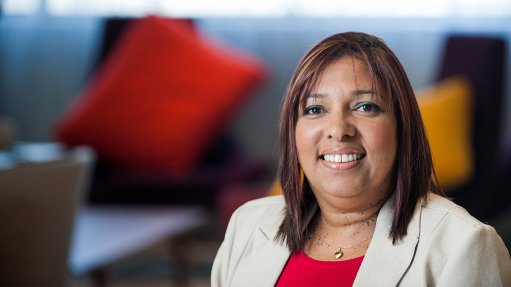
STACEY DAVIDSON It is critical that new industries are formed to enable small businesses and income-earning opportunities to be created
The Recycling and Economic Development Initiative of South Africa (Redisa) is deploying in-house specialists – including financial planners, business-modelling experts, logisticians and community engagement experts – to help boost the sustainability of small, medium-sized and microenterprises (SMMEs) in the sector. Redisa collects a waste management levy per kilogram of tyres from tyre manufacturers and importers and uses the funds to develop waste tyre recycling enterprises, which includes mentoring, training and supporting them through a two-year incubation process. “You cannot develop sustainable enterprises without a market or supply and demand for their services or products,” says director Stacey Davidson.“Thus, the first goal of Redisa is to understand the entire value chain to determine supply and demand forces, and the businesses related to waste recycling,” she says. The developmental needs of SMMEs are also taken into account, including the reality that the entrepreneurs involved in the Redisa programme cannot stop working to attend training courses, which include the development of a business plan. “This is where we help,” she says, explaining that Redisa’s specialists help the entrepreneurs develop business models based on the industry supply chain information and the services or products of the SMMEs. These business models are also used to develop training and mentorship courses for the various businesses, often involving weekend courses and short courses over the two-year period. “A significant portion of the training involves establishing basic busi- ness principles with the entrepreneurs to enable them to work accurately and sustainably,” says Davidson. Besides training, Redisa also offers other support, including a telecommunications platform, which allows entrepreneurs to secure additional business. It also conducts quality inspections and solicits reports from the clients to control quality. “We believe the Redisa model can be effectively deployed to develop a viable and sustainable recycling industry.“